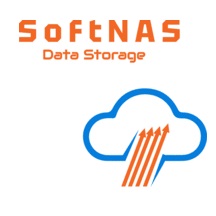Ultra-fast, flexible, and easy hybrid cloud integration worldwide is now possible
Houston, TX–SoftNAS introduces the industry’s first truly cloud-native, 100% software-centric data management platform for full-spectrum control of any data, any cloud, anywhere.
The SoftNAS Data Platform bridges newer cloud operating systems, like AWS and Azure, with existing on-premises application stacks and SaaS systems to make hybrid cloud design and deployment ultra-fast, flexible and easy. Expanding on its leadership position as the #1 best-selling Cloud NAS, SoftNAS’ new CloudFabric™ architecture enables enterprises to design, configure, control, integrate, manage and store any kind of data in the cloud. These multi-cloud capabilities encompass premises-based, public cloud, private cloud, SaaS, Internet of Things, and hybrid cloud configurations, delivered as subscription-based, software-defined services.
SoftNAS Data Platform’s new products reduce cloud migration costs by up to 10X and decrease implementation times by 3-4X utilizing existing IT skills to design and configure robust hybrid-cloud solutions. Its patent-pending UltraFast™ technology accelerates global data movement and storage access up to 20 times faster than TCP/IP over high-latency, congested and dirty network conditions.
Enterprises are realizing that cloud migration of existing applications and data is much more difficult than expected. High costs associated with redeveloping and redesigning applications, long project timeframes, and limited cloud-skilled DevOps personnel to carry out the cloud development work all combine to undermine successful cloud-centric digital transformation outcomes.
SoftNAS Data Platform addresses three fundamental challenges:
- Migrating large amounts of data into the cloud, while keeping everything live in production
- Capturing and managing the exponentially growing business data of all types, including from the Internet of Things, and large-scale analytics
- Utilizing existing IT staff to design and configure instead of always redesigning for the cloud.
The new hybrid cloud product line is composed of SoftNAS Essentials, SoftNAS Enterprise (formerly SoftNAS Cloud NAS), and SoftNAS Platinum. Each of the products is optimized to handle a specific set of data management needs and use cases while operating across public, private, hybrid, and multi-cloud environments. (View related news release “SoftNAS Product Line Expands to Meet Growing Cloud Data Control Challenges“)
“SoftNAS has raised the bar with the advent of their upcoming hybrid cloud data product lineup. Many of the advanced features will be available for SoftNAS customers to try out in beta release, with the 3.6 release of SoftNAS Enterprise product edition. Most impressive is the integration of Apache NiFi and a cloud native, hybrid cloud data product allowing customers to create their own data flows, processes and templates, effectively ingesting and transforming any type of data. Other impressive beta features are secure and easy data migration from on-premises systems to various cloud platforms at accelerated network speeds across WANs and the Internet. SoftNAS is making it much easier for businesses to take control over their data, no matter where it resides,” said Arun Taneja, Taneja Group.
Data growth is expected to reach over 163 zettabytes by 2025 according to analyst firm IDC.* “With so much growth, organizations are looking to the cloud as an elastic way to store and process their data, and increasingly in a multi-cloud environment. But customers often lack an integrated view across their data storage resources and services. Building a unified view of data across a diverse set of IT platforms is a key need today, and addressing this will enable businesses to more effectively derive value from their data,” stated Deepak Mohan, Research Director, Public Cloud Infrastructure as a Service, IDC.
The new SoftNAS Platinum product is the centerpiece of the company’s hybrid cloud strategy. SoftNAS Platinum is a hybrid cloud data platform for moving business data, overcoming network latency issues among remote offices and factories globally, and managing numerous data types including IoT integration. A preview of SoftNAS Platinum beta features is now available. Existing customers that have upgraded to SoftNAS version 3.6 can access the beta features from the SoftNAS StorageCenter™.
“SoftNAS speeds cloud adoption by simplifying Lift and Shift cloud migrations and accelerating bulk movement of any data to any cloud with its innovative UltraFast™ and FlexFiles™ technologies,” said Rick Braddy, CEO, CTO, and Founder of SoftNAS. “By turning hybrid cloud data integration into an ultra-fast, flexible, and easy drag-and-drop configuration process, customers can design and configure instead of redesign and redevelop. And UltraFast flattens the Internet and WAN, making global data access and bulk movement possible at near LAN speeds. It’s exciting to finally be delivering on our mission to be the fabric for business data in the cloud after years in the making. Our cloud fabric is real, it’s 100% software-based and ready to launch and try today for free.”
Control Any Data. Any Cloud. Anywhere.
SoftNAS® the leading software-defined NAS provider for the cloud. Our mission is to be the fabric for business data in the cloud. SoftNAS provides a software-centric architecture that enables frictionless data management and control of any data, any cloud, anywhere. The SoftNAS cloud data platform and CloudFabric™ architecture provide customers a unified, integrated way to aggregate, transform, accelerate, protect, and store data and to easily create hybrid cloud solutions that bridge islands of data across SaaS, legacy systems, remote offices, factories, IoT, analytics, web services, SQL, NoSQL, and the cloud – any kind of data. SoftNAS provides the enterprise-class data security, protection, performance, and high availability required to safely, predictably, and reliably operate IT systems and applications in the cloud. SoftNAS works with the most popular public, private, hybrid, and premises-based cloud operating systems, including Amazon Web Services™, Microsoft® Azure™, and VMware vSphere®.





